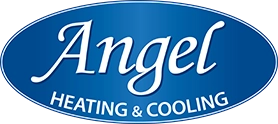What is a BTU?
HVAC Repair Company in Philadelphia
BTU is a term you might hear an HVAC repair company in Philadelphia talk about. It’s a unit of measurement for how much energy is used in heating or cooling that stands for British Thermal Unit. Let’s demystify BTUs and explain why this metric is important for heating and cooling systems.
Determining the Right HVAC System for Your Home
As an experienced HVAC repair company in Philadelphia, Angel HVAC can help assess the appropriate type of heating and cooling system for your home. Every HVAC system has a BTU rating that should help determine where it will operate most efficiently. Air conditioners move hot air out and replace it with air cooled by water tubes. Energy is required to make this happen.
One BTU is essentially the amount of heat required to raise or lower one pound of water by one degree Fahrenheit in one hour. This metric is used to rate air conditioners, heaters, heat pumps, furnaces and cooking gear. BTU is a useful metric for both heat loss and heat gain.
You can avoid high energy bills by choosing the right heating and cooling equipment for your home, based on its size. A modern air conditioner typically needs 20 BTUs for each square foot of living space. You can get a rough estimate of how many BTUs a home requires by multiplying the square footage by 20. A more accurate method factors in measurements for ceiling height, doorway sizes and window sizes.
All things considered, a 100 square foot space typically needs 5,000 BTUs while a 500 square foot space needs 12,000 BTUs. A thousand square foot space needs 18,000 BTUs, while a 2,000 square foot space needs 30,000 BTUs.
How BTUs Relate to Other Metrics
Tonnage is an air conditioning term that associates with cooling capacity. It’s a measure of how much heat the AC unit can absorb to lower room temperature. One ton of cooling (aka refrigeration) equals the amount of heat required to melt a pound of ice in 24 hours. So one ton of cooling equates to 12,000 BTUs per hour. Two tons of cooling equals 24,000 BTUs per hour.
Another metric associated with BTUs is kilowatt hours. By converting BTUs to kilowatts, you can get an idea of how much energy an appliance will be using in kilowatt-hours. The amount of kilowatt hours in one BTU is .000293. So the equation for converting BTUs to kilowatts to determine kilowatt-hours for running an AC unit 3 hours per day is:
BTU X .000293 = kilowatts X 3 hours per day = kilowatt-hours per day
From this equation you can determine your energy costs associated with the appliance. You simply multiply kilowatt-hours by days in the month to arrive at kilowatt-hours per month. Then multiple this amount by cost per kilowatt hour, which is in cents.
Contact Angel HVAC
The best way to get the most out of your heating and cooling equipment is to work with our HVAC repair company in Philadelphia. We can assess your home and the HVAC system it needs to be energy efficient, based on BTUs.

